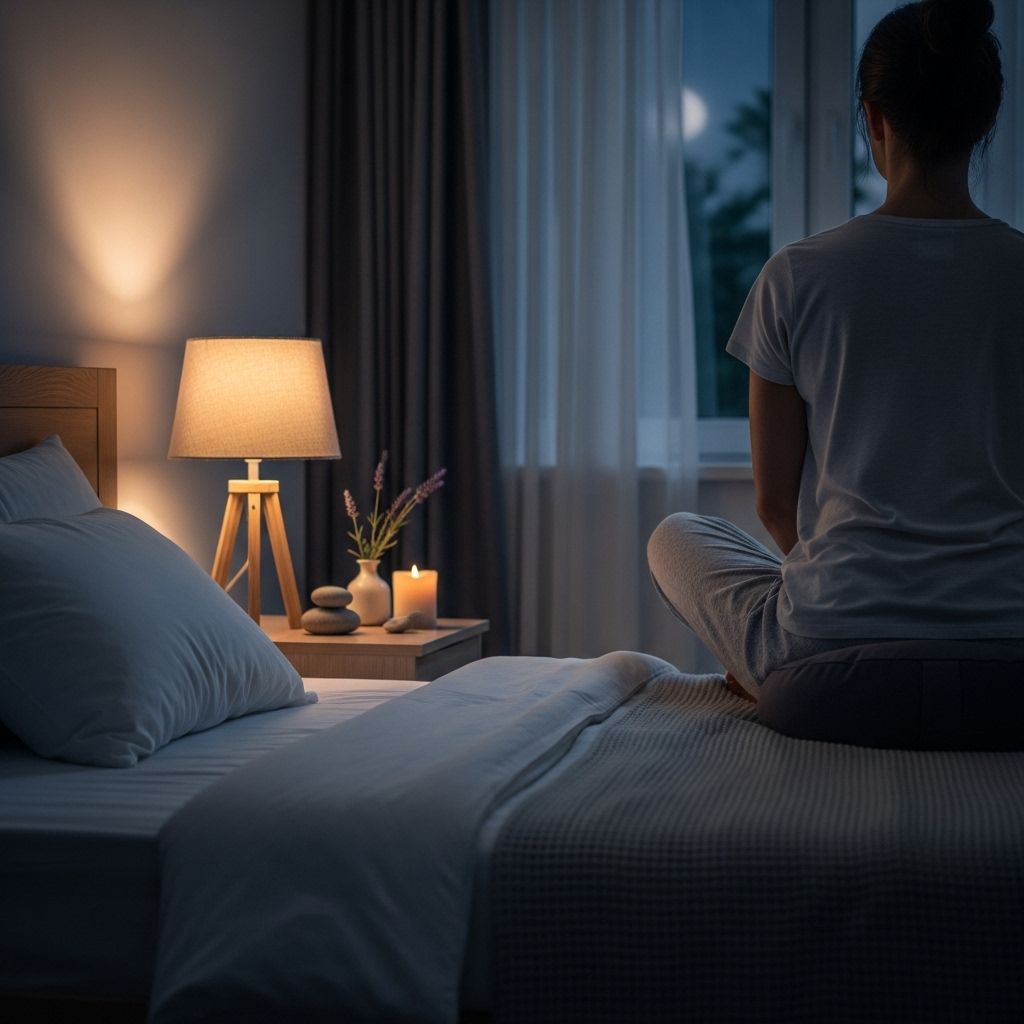Meditation for Sleep: Techniques for Insomnia Relief
Release daily tension and settle into a calming routine that soothes your mind.

Table of Contents
- Introduction
- Techniques for Sleep
- Benefits of Meditation for Sleep
- How to Practice Meditation for Sleep
- Frequently Asked Questions for Meditation and Sleep
Introduction
Insomnia, characterized by difficulty falling asleep, frequent awakenings during the night, and early morning wakefulness, affects millions worldwide. Traditional treatments often include medication, lifestyle changes, and cognitive behavioral therapy. However, many individuals are turning to alternative methods like meditation to improve their sleep quality. Meditation, a mindfulness practice that involves focusing on the present moment, has been shown to help manage stress and anxiety, which are common causes of sleep disturbances. This article explores the techniques and benefits of using meditation for insomnia relief.
Techniques for Sleep
Meditation techniques for sleep range from mindfulness and guided imagery to body scan and deep breathing exercises. Here are some of the most effective methods:
- Mindfulness Meditation: This involves focusing on the present moment, often through breathing or body sensations. By cultivating awareness and acceptance, it helps reduce stress and emotional reactivity, which can interfere with sleep.
- Guided Imagery: This technique involves visualizing a peaceful, safe environment. It can help shift the mind away from thoughts that might keep you awake, promoting relaxation and deep sleep.
- Body Scan Meditation: Participants focus on each part of their body, noting sensations and encouraging relaxation. This can help release tension and promote a restful state.
- Deep Breathing Techniques: Methods like the Whiskey Breathing Technique and Box Breathing can slow down the heart rate and calm the nervous system, making it easier to fall asleep.
Benefits of Meditation for Sleep
Meditation offers several benefits for individuals struggling with insomnia:
- Reduces Stress and Anxiety: By promoting relaxation and reducing stress hormones like cortisol, meditation can help improve sleep onset and quality.
- Improves Sleep Quality: Regular meditation has been shown to enhance overall sleep quality by reducing sleep disturbances and improving sleep duration.
- Non-Pharmacological Approach: Meditation provides a drug-free alternative to traditional sleep aids, which can have side effects and lead to dependency.
How to Practice Meditation for Sleep
Starting a meditation practice for sleep is straightforward:
- Find a Comfortable Space: Choose a quiet, comfortable spot where you can sit or lie down without distractions.
- Close Your Eyes: Closing your eyes helps focus your attention inward.
- Focus on Your Breathing: Begin with deep, slow breaths, inhaling through your nose and exhaling through your mouth.
- Use Guided Meditations: Utilize guided meditation apps or recordings to lead you through relaxing scenarios and breathing exercises.
- Start Small and Be Consistent: Begin with short sessions (3-5 minutes) and gradually increase the duration as your practice becomes more comfortable.
Frequently Asked Questions for Meditation and Sleep
Q: How long does it take to see the benefits of meditation for sleep?
A: Benefits can be noticed within a few days to a week of regular practice, but consistent improvement may take a few weeks.
Q: Can meditation replace traditional sleep treatments?
A: Meditation can complement traditional treatments but may not replace them entirely. It’s best used alongside other therapies for optimal results.
Q: Is there a specific time of day recommended for practicing meditation for sleep?
A: Practicing meditation in the evening, shortly before bed, is often recommended as it helps prepare the body for sleep.
Meditation for sleep is a powerful approach that can significantly improve sleep quality and provide relief from insomnia. By incorporating mindfulness, guided imagery, and body scan techniques into your daily routine, you can achieve a more restful night’s sleep and enhance your overall well-being.
References
- https://www.choosept.com/health-tips/meditation-methods-improve-insomnia
- https://pmc.ncbi.nlm.nih.gov/articles/PMC3060715/
- https://www.youtube.com/watch?v=nMDHjVVj3bA
- https://www.healthline.com/health/meditation-for-sleep
- https://www.sleepfoundation.org/meditation-for-sleep
- https://www.youtube.com/watch?v=FIMdEPd98xs
- https://www.health.harvard.edu/blog/mindfulness-meditation-helps-fight-insomnia-improves-sleep-201502187726
- https://www.headspace.com/meditation/sleep
- https://www.youtube.com/channel/UCqPYhcdFgrlUXiGmPRAej1w
Read full bio of medha deb












